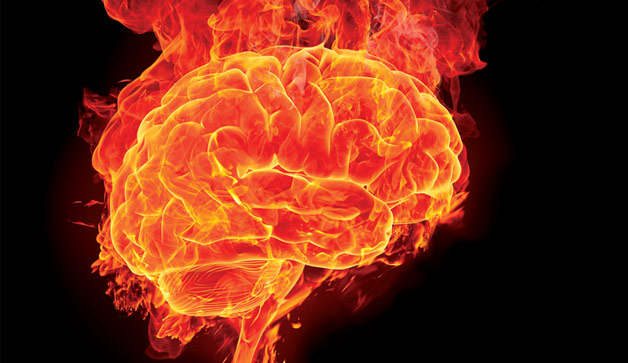A woman recounts her experience: “It happens after I eat chocolate or drink red wine, or right
before I start my period. I know it’s coming on because I start to see flashes of light in my peripheral vision. That’s when I brace myself, wherever I am, knowing my day’s plans may be shot. Best-case scenario, I’ll take prescription medicine and kick it before it kicks me. Worst-case, I’ll have to leave work and will be confined to my bed, in the dark, drinking cups of black coffee with an ice pack on my head, until the pain subsides. Sometimes the pain doesn’t let up for a day or two. When I do finally feel some relief, I am exhausted and hungover.”

Thirty-Six Million Americans Suffer from Migraine Headaches
Yes, migraines are miserable and debilitating. The World Health Organization identifies headache disorders (“symptomatic at least once within the last year”) among the most common disorders of the nervous system, affecting 50% of adults worldwide. Thirty percent of those affected reported having had a migraine in the last year. Moreover, 1.7 – 4% of adults worldwide experience headaches 15 or more days per month. If on 8 of those 15 days, features of migraine headaches are also present, and if this persists for 3 months, then one would be diagnosed as having chronic migraines. Chronic migraines affect 1% of the population, or about 75,000,000 people across the globe.
It is estimated that about 36,000,000 Americans suffer from migraines, but only 1 in 3 people discuss this with a physician. Depression and anxiety often accompany migraines, so suffering extends beyond physical pain. The 2015 Global Burden of Disease study identified migraine as the third cause of disability in adults under the age of fifty. Migraines leave sufferers unable to function as usual, interfering with their health, productivity, quality of life, and financial security.
Check out this SciShow video to learn more about migraines...
Migraine Treatments Available
Treatments for migraines include but are not limited to pain-relieving medications, preventative medications, acupuncture, biofeedback, yoga, meditation, and cognitive behavioral therapy (CBT). Botox has even been found as efficacious in the treatment of migraines, and the FDA approves the use of Botox to treat migraines in adults who are age 18 and older.
Despite the number of effective treatments available, still some people experience refractory migraines, or migraines that do not respond to standard treatments. Recent small studies (such as this one) suggest the efficacy of ketamine infusion therapy in the treatment of chronic migraines. Ketamine is an antagonist of NMDA-subtype glutamate receptors, which are thought to play a role in pain transmission. Subjects with refractory migraines who were given ketamine infusion therapy reported a significant decrease in pain on the VAS scale.
Disclaimer: As of September 29, 2023, NeuroMend no longer offers Spravato treatments. We apologize for any inconvenience and encourage you to consult with our team or your healthcare provider for alternative options.
If you suffer with migraines, please talk to your doctor or contact us at NeuroMend Infusion Center.
ABOUT NEUROMEND INFUSION CENTER
![]() We are an Evidence-Based Center of Excellence and the leading provider of Ketamine Infusions, IV Infusions and Ketamine Consulting Services for Ketamine Clinics and IV Therapy Clinics.
We are an Evidence-Based Center of Excellence and the leading provider of Ketamine Infusions, IV Infusions and Ketamine Consulting Services for Ketamine Clinics and IV Therapy Clinics.
We Provide Effective Treatment For The Following Conditions: Major Depressive Disorders, Post-traumatic Stress Disorder (PTSD), Bipolar Depression, Suicidal Ideations, Obsessive Compulsive Disorder (OCD), Chronic Migraines, Severe Anxiety, Fibromyalgia and Chronic Pain.










